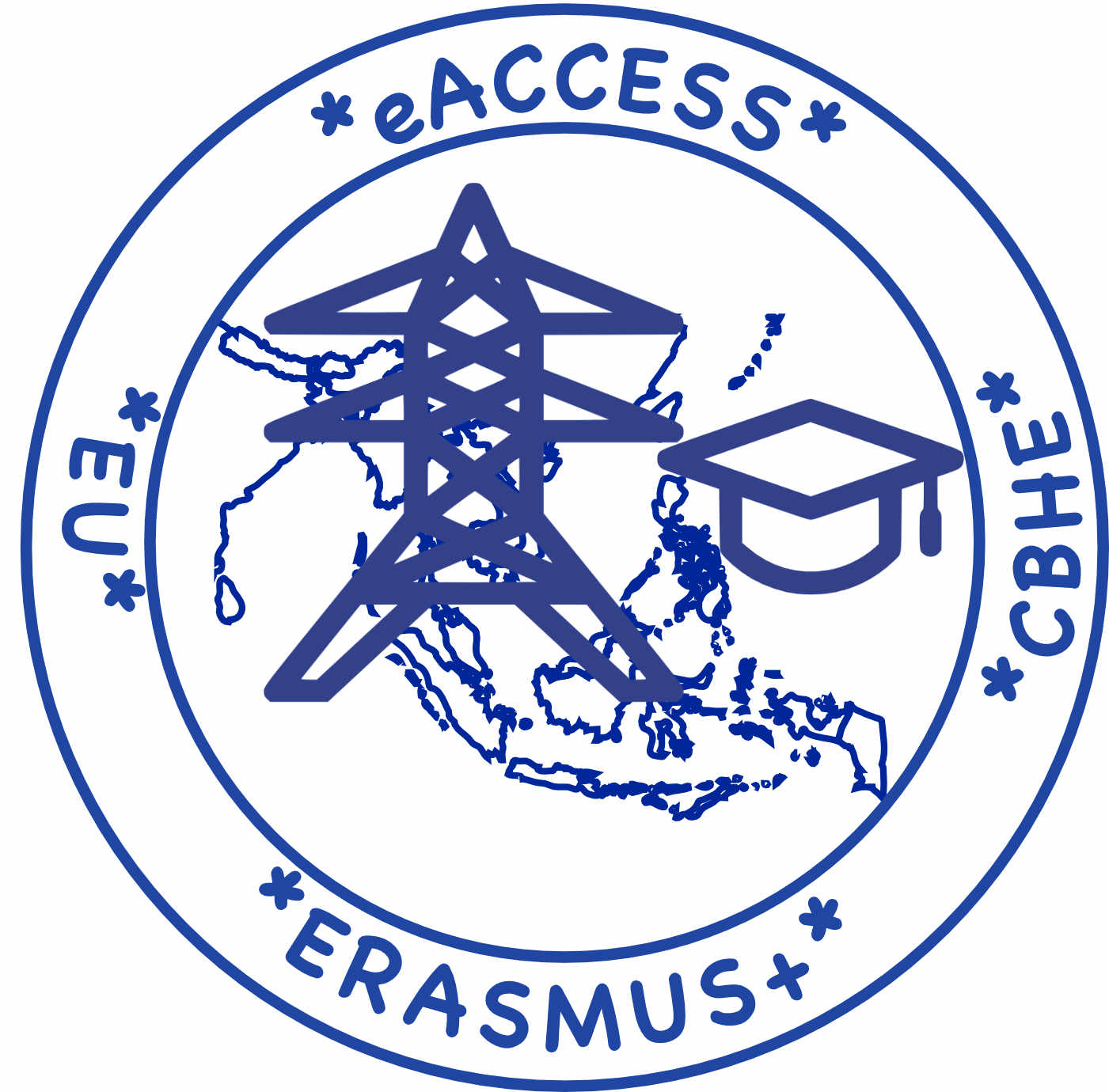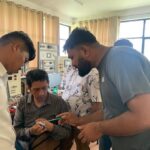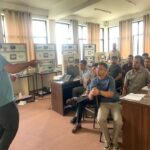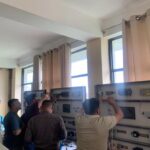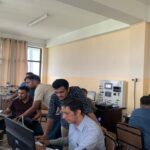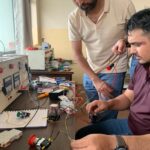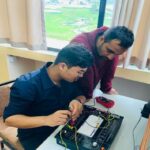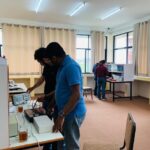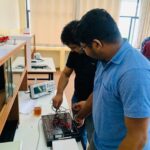Staff Training on eAccess Automation Laboratory and Power Electronics Laboratory
This report provides a comprehensive summary of the Industrial Automation using PLC and Power Electronics Laboratory training program conducted at Kantipur Engineering College (KEC). The training was an integral component of the contract awarded to Thoplo Machine Pvt. Ltd. by KEC, which encompassed the installation, testing, commissioning, and Train-the-Trainer (TOT) level training.
Training Venue:
The training sessions were conducted within the state-of-the-art Automation and Power Electronics Laboratory that had been previously installed and commissioned as part of the contract with Thoplo Machine Pvt. Ltd. This dedicated laboratory provided a conducive learning environment equipped with the necessary hardware and software for hands-on training.
Automation Laboratory Training:
The primary aim of the training program was to equip KEC’s faculties and staff with the knowledge and practical skills necessary for proficient utilization of Programmable Logic Controllers (PLCs) in the realm of industrial automation. The contractor conducted the training on the installed and commissioned Automation laboratory for 9 staffs of KEC. The training was organized from 26-30 June with the duration of active 40 hours. The expert trainer provided the training for performing the exercises on:
1. Switchgear Automation: 6 hrs
Participants delved into the fundamentals of switchgear automation, understanding its importance in electrical distribution systems and industrial processes.
2. PLC: Architecture, Wiring and Programming: 12 hrs
his extensive segment covered the core aspects of PLCs, including their architecture, wiring techniques, and comprehensive programming. Participants gained proficiency in developing PLC programs for various applications.
3. HMI Programming and Interfacing: 4 hrs
The training program included an exploration of Human-Machine Interface (HMI) programming and its critical role in facilitating user-friendly interactions with automation systems.
4. VFD wiring Control and Applications: 4 hrs
Participants learned about Variable Frequency Drives (VFDs) and their significance in controlling motor speed in industrial settings. Wiring techniques and practical applications were covered in detail.
5. SCADA: 4 hrs
Supervisory Control and Data Acquisition (SCADA) systems were introduced, focusing on their role in monitoring and controlling complex industrial processes.
Outcomes:
By the end of the training program, participants had acquired a solid foundation in industrial automation principles and practical skills related to PLCs, HMI, VFDs, and SCADA systems. This newfound knowledge and expertise positioned them to contribute effectively to the operation, maintenance, and optimization of automation systems within KEC.
In conclusion, the training program was a well-structured and intensive initiative that equipped KEC’s faculty and staff with the essential skills and knowledge required for industrial automation using PLCs. The hands-on approach, combined with expert instruction and a dedicated laboratory, ensured that participants were well-prepared to apply their learning in real-world scenarios, further enhancing the college’s capabilities in the field of industrial automation.
Power Electronics Laboratory Training:
The contractor conducted the training on the installed and commissioned power electronics laboratory for 8 staff of KEC. The training was organized from 2-4 July with the duration of active 20 hours. The objective of this training was to empower KEC’s staff with practical knowledge and skills related to power electronics.
The expert trainer provided the training for performing the following experiments
• Basic I-V Characteristics of Power Transistors, Diodes, Thyristors (SCRs): Participants gained insights into the fundamental characteristics of key power electronic components, including transistors, diodes, and thyristors (SCRs).
• Characteristics of IGBT: The Insulated Gate Bipolar Transistor (IGBT) was explored, with a focus on its operating characteristics.
• Basic I-V Characteristics of MOSFET: Participants studied the fundamental characteristics of Metal-Oxide-Semiconductor Field-Effect Transistors (MOSFETs).
• TRIAC Circuit: Understanding and experimenting with TRIAC circuits, which are essential components in power control applications.
• Single-Phase, Full-Wave, and Bridge Rectifiers with Resistive Load: Practical exercises involving rectification circuits and their applications in single-phase systems.
• Single-Phase SCR Controller: Learning and experimentation on Single-Phase Silicon-Controlled Rectifiers (SCRs) and their control methods.
• Three-Phase Bridge Rectifiers with Diodes and with SCRs: In-depth study of three-phase bridge rectifiers, both with diodes and Silicon-Controlled Rectifiers (SCRs).
• Rectification for Inductive Loads: Understanding and implementing rectification circuits for inductive loads, a critical aspect of power electronics.
• Operation of Choppers: Participants delved into the operation and control of chopper circuits used in power electronics applications.
Training Highlights:
The training program was characterized by hands-on experiments, allowing participants to apply theoretical knowledge to practical scenarios. This experiential learning approach fostered a deep understanding of power electronics concepts and their real-world applications.
Conclusion:
In conclusion, the Power Electronics Laboratory Training conducted at KEC provided an invaluable opportunity for staff members to acquire practical skills and knowledge in the field of power electronics. The expert trainer’s guidance and the fully equipped laboratory ensured that participants gained a solid foundation in power electronics principles and applications.
